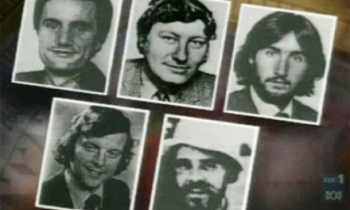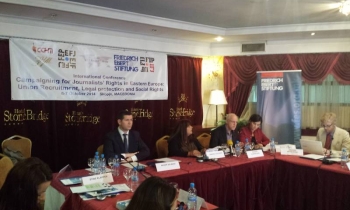Malaysia has banned the mainstream media from reporting on an explosive issue concerning the very nature of the country's constitution that points to the problematic relationship between law and religion. Following the Internal Security Ministry's directive on July 19, several journalists and editors have already retracted some commentaries on the topic scheduled for publishing that day, according to the Southeast Asian Press Alliance (SEAPA).

The controversy about Malaysia's political system has been brewing since former prime minister Mahathir Mohamad declared the country an "Islamic state" in a September 29, 2001 speech. It resurfaced on July 17 this year, when Deputy Prime Minister Najib Abdul Razak repeated Mahathir's assertion and added that the Muslim-majority country has never been a secular one and has always been guided by Islamic fundamentals.
Najib's claim received strong objections from opposition parties and even a member-party of the ruling front, following which the Internal Security Ministry's Publications Control and Al-Quran Texts Unit banned the media from reporting on such reactions, but permitted further assertions from Najib and Prime Minister Abdullah Ahmad Badawi.
A ministry officer, Che Din Yusof, said responses from political parties and the public, "especially negative reactions", will not be allowed for fear of creating "tension" over a "sensitive issue", the website Malaysiakini reported.
SEAPA condemned the ban and was alarmed to note the increasingly authoritarian streak of the Abdullah administration, which has been curbing legitimate voices of concern regarding the highest law of the land. In July 2006, Abdullah banned discussions of inter-faith issues when similar concerns arose about constitutional guarantees for freedom of religion. The media was similarly banned from discussing the issue then.
The Malaysian press, bound by the draconian 1987 Printing Presses and Publications Act, which was enforced to devastating effect in a 1987 clampdown that suspended three news publications, has had little choice but to obey such government orders - a fact that had been relatively unexposed until the emergence of the Internet.
On the Internet front, a prominent blogger detained under the Official Secrets Act for comments on his blog accusing a minister of corruption is the latest victim of an emerging clampdown on online expression in the country and region.
Nathaniel Tan, an aide to former Deputy Premier Anwar Ibrahim and webmaster for the main opposition group PKR, was taken from his office by three plainclothes policemen on July 13 on suspicion of possessing "official secrets" and remanded for four days.
Comments on Tan's blog - http://jelas.info - accused Deputy Internal Security Minister Johari Baharum of accepting bribes to release gangsters. Baharum was cleared of the allegations by the Attorney-General last week. According to national news agency Bernama, he had told police on the day of Tan's arrest to track down writers who "spread lies through websites."
Bloggers in Malaysia helped organise a vigil for Tan over the weekend and circulated an online petition that called for his release.
Tan is the second blogger to face legal action within a three-day period. On July 10, an official investigation was launched into Tian Chua, a well-known activist and Tan's senior in the opposition party, for his photomontage on http://www.tianchua.net/ that implicated an elite police unit in a high-profile murder case.
According to SEAPA, already this year two bloggers and a news website are being sued for defamation, and a task force has been set up to look at how existing laws can be used to circumvent Malaysia's Bill of Guarantee against Internet censorship.









